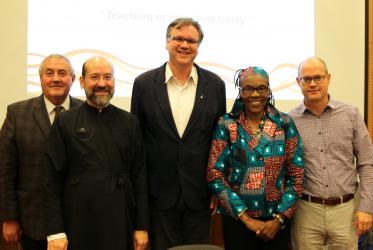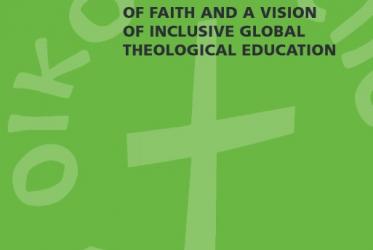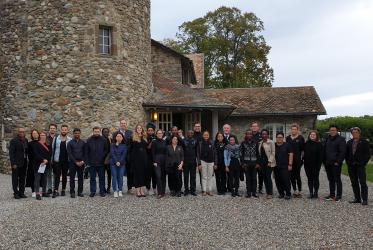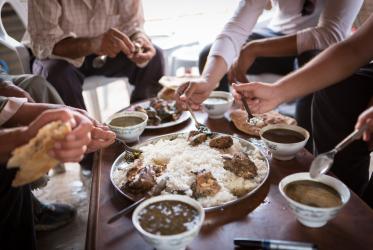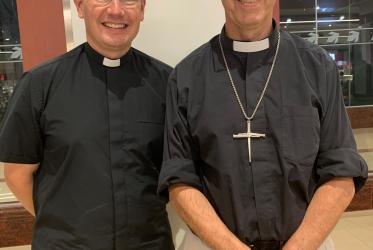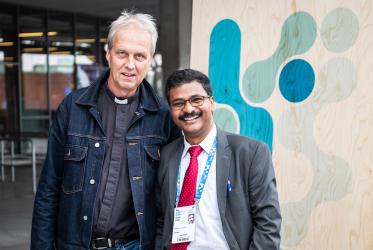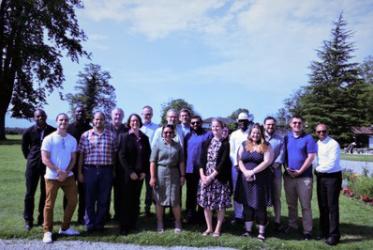Displaying 121 - 140 of 325
WCC to host lecture and book launch by Jürgen Moltmann
20 November 2019
Those who make Bossey so special: The students
14 November 2019
Panel explores: How do we teach ecumenism today?
01 November 2019
WCC commission gathers to focus on next generation of ecumenists
28 October 2019
Bossey students mark Thursdays in Black with Swedish visitors
10 October 2019
WCC President Wejryd: ‘Water, in many ways, represents God’
27 September 2019
New Anglican director of unity sees encouraging signs
24 September 2019
New academic year underway at Ecumenical Institute, Bossey
18 September 2019
New website launched for Bossey Hotel and Conference Centre
12 September 2019
Water and Faith showcase highlights results of collaboration
26 August 2019
Behind-the-scenes in the kitchen at Bossey
15 August 2019
Bossey gathers students for interreligious dialogue
02 July 2019
